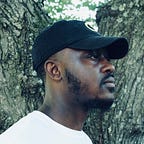Got Doubts?
My genesis began in church. The term is called “pew baby” which refers to the idea of spending every waking moment of your life in the inside of church walls. I learned a great deal about my faith and what it means to be a Christian, but I was never exposed to any other opposing beliefs. When I attended university for the first time, I was greeted with a myriad of different beliefs systems and culture norms that caused me to question the validity of my beliefs. Doubt became the stain that I could not remove from the fabric of my mind due to consideration of historical, experiential, and logical enigmas that were raised in contrast to what I trusted in my whole life. Though the process of deconstruction was frightening, I am thankful for the rigor of doubt because it created empathy, deepened my faith, and showed me that God is still God even in the midst of my doubts.
I am a natural skeptic who questions illogical and fictitious claims. I recall the story of Thomas doubting that Jesus had resurrected from the dead. Thomas could not believe it until Jesus walked through a closed door to show him the holes in his sides and hands (John 20:24–29). As Thomas’ doubts fade when face to face with his Savior, Jesus declares those who do not see and yet believe as blessed. The word blessed in this context means to be happy or to be envied. As I had my entanglements with doubt, m amount of past and present y visibility amounted to seeing the injustices occurring in our world and a seemingly absent God. My disposition was not one of happiness but despair. The hopelessness led to a disclosing of my apathy towards the suffering of other people which increased my compassion and empathy while creating a greater dependence on God to deepen my faith. As I had my entanglements with doubt, my visibility of the past and present injustices occurring in our world and a seemingly absent God became clear. My disposition was not one of happiness but despair. The hopelessness led to a disclosing of my apathy towards the suffering of other people which increased my compassion and empathy while creating a greater dependence on God to deepen my faith.
I was living in a bubble of Christian culture unscathed by other worldviews or objections. I thought I had a full faith but shallow, untested, and inactive is a fair description. Doubt paved the way for an opportunity for growth. It became the catalyst for me to dig deeper, listen more, surround myself with community, and ask God for help. A deconstruction of your faith is necessary for maturation and authenticity. I am against an unhealthy version of questioning everything about your faith to the degree of throwing it away. I believe that the balance of challenging yet believing can be achieved without throwing the baby out with the bath water. To challenge your belief system can be a scary thing because at some points it feels like nothing is keeping you from drifting, but God is not turned off by our doubts.
In the book of Habakkuk, the prophet Habakkuk sees injustice all around and struggles with how to reconcile his belief in God being good, but the allowance of injustice and perversion in Israel. Through these three chapters, a call and response layout of Habakkuk questioning, God responding, and Habakkuk praising God through his doubts. We see that God does not punish us for having questions, but invites us to have them. Our doubts do not make us less Christians, but make us more dependent on a God who will always keep us through them.
